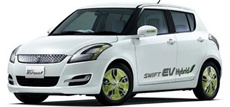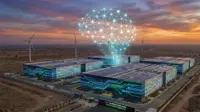Damp squib: no plans for all-electric cars by 2030, says India
03 Jan 2018
After more than a year of trumpeting and media brouhaha that India will have an all-electric car fleet on its roads by 2030, Parliament was informed today that there is no such plan.
 "There are, at present, no plans under consideration of the Department of Heavy Industry to make all vehicles in the country powered by electricity by 2030," Minister of State for Heavy Industries Babul Supriyo said in a written reply in the Lok Sabha.
"There are, at present, no plans under consideration of the Department of Heavy Industry to make all vehicles in the country powered by electricity by 2030," Minister of State for Heavy Industries Babul Supriyo said in a written reply in the Lok Sabha.
Union minister Piyush Goyal had said in August 2017 that the world is moving towards electric vehicles and the government is working on a road map to ensure an all-electric car fleet in the country.
"Only electric car by 2030 ... existing cars may take a little longer to replace. But the government is working on a framework to see what we can do on promoting electric vehicle. Niti Aayog is currently tasked with preparing futuristic vision for electric vehicles," Goyal had said.
Of course, there were always doubts about the feasibility of such a plan, and it made few waves in the global automotive industry, given the lack of any practical moves in this direction like building charging infrastructure or ensuring 24/7 availability of power across the country.
China, for instance, has built 15,000 electric charging stations; India has just 150 so far.
Car makers like Maruti Suzuki, Mahindra & Mahindra and Tata Motors have already initiated moves to strengthen their EV portfolio. Toyota and Suzuki signed a memorandum of understanding which will the two companies working together for introducing EVs in the Indian market by around 2020 (See: With Toyota-Suzuki tie-up, Maruti aims at EV launch by 2020).
Suzuki Motor will be setting up a lithium-ion battery manufacturing joint venture (JV) with Toshiba and Denso which will see an investment of Rs1,151 crore to set up production facilities. The JV's new plant will rollout locally made batteries for use in hybrid and all-electric cars by 2020.
Mahindra has announced that it will be launching two new electric cars in India. Both the cars will be based on current models, it said. Reports say the company will be invest up to Rs600 crore over three years to build these cars for the domestic as well as export markets.
Tata Motors too has started production of the Tigor EV but for the time being it's only for the State-run Energy Efficiency Services Ltd. EESL will procure 10,000 electric vehicles from Tata Motors after a competitive bidding. Tata Motors will supply the electric vehicles (EVs) in two phases with 500 e-cars in the first phase, which has already been delivered; and the remaining 9,500 EVs in the second phase
Luxury car maker Audi has already said that it's ready to bring in EVs into India as early as 2020 and Mercedes-Benz, Jaguar Land Rover, BMW and Volvo are drafting their EV strategies for India.
But such moves might have come anyway, irrespective of the government's grandiose pronouncements, given the global push towards EVs.


















